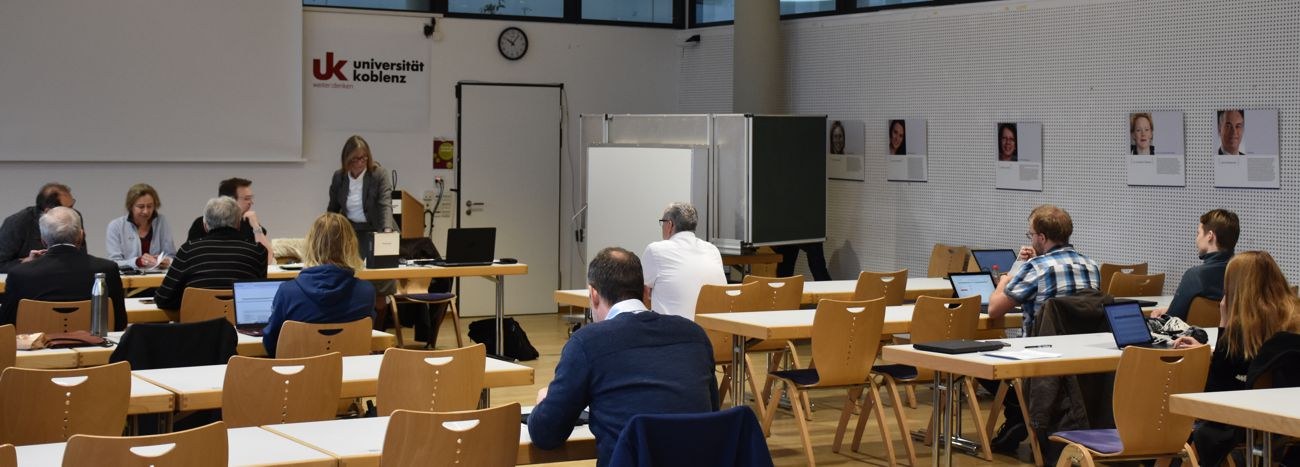UNIVERSITY OF KOBLENZ
Universitätsstraße 1
56070 Koblenz

Alongside academics and teaching, academic self-government is one of the permanent tasks of a university.
The faculty therefore brings together a wide variety of committees under one roof, which are united in the faculty council as its central information, advisory and decision-making committee for matters of fundamental importance.
The Faculty Council consists of nine members from the group of universtiy teaching staff, four members from the group of students, three members from the group of academic staff and one member from the group of technical and administration staff. In addition, the equal opportunities officers of the respective faculties are members of the Faculty Council in an advisory capacity.
For all topics that are of central importance to the Faculty, the Faculty Council appoints representatives or forms committees.
In the following sections, you will be referred to the corresponding pages of the committees and representatives.
The committee discusses the distribution of funds for literature and other electronic media and liaises with the University Library on site.
The committee advises on doctoral procedures at the faculty and is responsible for the formal framework conditions.
Good to know: We offer courses and opportunities for degrees along the entire education chain and publish scientific papers in recognised peer-reviewed journals. Do you have any questions?
Find out more here:
PhD student representation
The PhD student representation is the elected body representing the interests of doctoral students at the University of Koblenz. It is involved in matters concerning doctoral students and provides them with appropriate support. It also serves as a central point of contact and promotes extra-departmental networking among doctoral students.
Find out more here:
At Faculty 3, the Committee for Quality Assurance and Development is the first point of contact for all matters relating to the evaluation of courses. Since 2014, this has been combined with the Academics and Teaching Committee and is headed by a Quality Assurance Officer, who was appointed by the Faculty Council for the first time at the beginning of 2014, together with the Vice-Dean for Academics and Teaching.
The committees advise on issues specific to the degree programme that arise in connection with their responsibilities under the respective examination regulations. They are the point of contact and are responsible for compliance with the formal framework conditions.